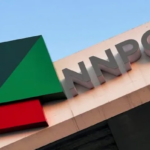Insecurity has displaced a number of nomad communities in some parts of the country. What efforts are you making to address the need of their children in terms of access to education?
In terms of the provision of basic education, we have three strategies including the face-to-face contact with the people in grazing reserves, the distance approach for those moving from one place to another which involves the use of radio and audio cassettes as well as the use of collapsible classrooms. We use boats in the riverine areas to reach the nomads. Insecurity is one of the problems affecting the effective implementation of our programmes. This includes the Boko Haram attacks and farmer-pastoralists clashes. We want to appreciate the effort of some state governments in trying to keep peace in the troubled communities, especially in the FCT, Taraba and Oyo states due to the establishment of conflict settling mechanisms between the farmers and Fulani. There were a lot of public enlightenment campaigns against encroachment of farmlands. Again, effort is being made by the commission to ensure that people tolerate the cultures of one another. The establishment of grazing reserves and ranches has always been controversial but recently government indicated interest to establish ranches across the country. This is a step in the right direction because already, there were grazing reserves that were not in the official gazette while social amenities that will make life conducive were not provided. The Ladugga grazing reserve in Kaduna is about 73,000 hectares but there were no roads and hospitals and residents were not comfortable. The African Development Bank is supporting us in the establishment of vocational training centres in the grazing areas. This will enable the inhabitants acquire skills and uplift their livelihood. Otherwise, life there will be miserable. The reserves need to be protected and people there need to be educated.
How would you assess girl-child enrollment in nomadic schools?
At the time I assumed duty as Executive Secretary of the commission there was low enrollment and the pupils in school were not looking smart because they have no uniforms. We started with advocacy on the need for parent to send their wards to school. We have about 13,000 schools and over 519,000 pupils across the country and I constantly visit them. Just recently, I visited the Paikon Kore Nomadic Primary School where I discovered that there was the need to improve the school environment and pupils’ welfare. We held a meeting with the leaders of Miyetti Allah Cattle Breeders Association of Nigeria (MACBAN) and discussed areas where they could assist the commission, especially on school enrollment. Again, we met with the women wing of MACBAN.
How did you monitor the progress of pupils in your schools?
We have six departments in the commission-mobilisation, programme, monitoring, and procurement. The monitoring department was set up to ensure effective monitoring of our programmes, pupils, infrastructure and teachers, the environment and the role of the communities. By the time we completed the monitoring exercise in the south-south region, we found that there were a lot of schools without teachers and classes with pupils learning under the trees.
How effective is the radio learning programme?
There has been a pilot programme in six states and the essence is not only to educate the pupils but to mobilise the parents to take care of their children. Literate parents will continue to monitor their wards after the school hours. We have mobile schools with radio programme and very soon we shall subscribe to the radio station of the National Teachers Institute (NTI). We have recorded radio programmes and lessons which the pupils follow. Each class has a radio.
What are your challenges?
In Nigeria we have three major federal agencies intervening in basic education even though it is the responsibility of local government and states namely. They are UBE, Nomadic Commission and Mass Literacy Commission. The resources coming to the commission, through the capital budget, is not commensurate with the activities of the commission and that is why we are asking for more funds. There is the issue of two percent consolidated fund given to UBEC for the purposes of basic education. We are pleading with the government to give us some parts of that fund. The remoteness of our schools is another problem because teachers posted to rural areas hardly stay and run to urban centres. So, we are facing the problem of how to make the environment conducive for the teachers and pupils. Again, the commission is located in Kaduna and officials always travel to Abuja for meetings. The commission is yet to have its own building and we live in a rented house. We are facing shortage of staff and we are not permitted to recruit staff because of lack of cash backing. In some schools, we allocate three teachers to six classrooms or two classrooms to one teacher. We are also pleading with the government to provide the pupils with uniforms. In this regard, we have approached the Dangote Group to see whether they can help provide uniforms to the 519,000 pupils in our schools. ADB is supporting us in the area of technical education while UNICEF is supporting us to train our teachers, just like the UBEC. We provide our pupils with free instructional materials. Last year we provided 19,000 text books through the support of UBEC.
 Join Daily Trust WhatsApp Community For Quick Access To News and Happenings Around You.
Join Daily Trust WhatsApp Community For Quick Access To News and Happenings Around You.



